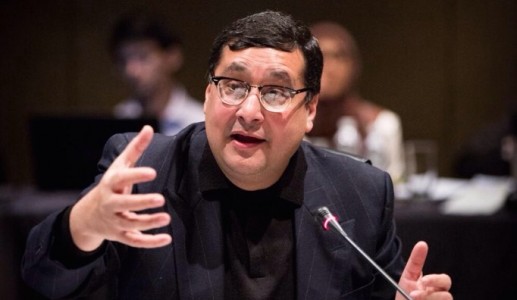Najam Interviewed on South Asian Heatwave
Adil Najam, Dean of the Frederick S. Pardee School of Global Studies and Professor of International Relations and of Earth and Environment, was recently interviewed on the second year of extreme heat in South Asia and the challenges facing the region in terms of addressing climate change.
Najam was interviewed on July 18, 2016 for an episode of the Beyond Zero Emissions “Community Show” podcast entitled “The Day After Tomorrow.”
From the interview:
Last year was a particularly bad year in terms of the impact of the heat. Now, Pakistan and South Asia is not a part of the world that is unfamiliar to heat — even to intense heat. This is a place where the highest-ever temperatures are routinely recorded, but one of the things that happened last year was that the intensity was more, the time period over which the heatwave persisted was more — this was true for South Asia in general, India and Pakistan in particular and Karachi in Pakistan in particular.
In Pakistan and Karachi’s case, the perfect storm happened because this also came in the midst of the Muslim month of Ramazan, which is a month of fasting. What that meant was that there were people that were fasting for religious reasons who were trying to sort of push themselves harder. More than that the infrastructure of support that is already missing in a poor country, especially for the poorest people, became even weaker. All of these things combined to create this sort of massive wave and this very large number of people who died because of it, and it shook not just the large city of Karachi, but the country.
You can listen to the full interview here.
Before being named the Inaugural Dean on the BU Pardee School, Adil Najam was the Vice Chancellor of the Lahore Univeristy of Management Sciences (LUMS) in Lahore, Pakistan. He is a globally recognized expert on environment and development policy (particularly climate change) and also on politics and society in the Muslim World, particularly Pakistan. He holds a PhD and two Masters’ degrees from the Massachusetts Institute of Technology (MIT). He also has a Specialization in Negotiation from the Program on Negotiation at the Harvard Law School, and an engineering degree from the University of Engineering and Technology (UET), Pakistan. You can learn more about him here.
